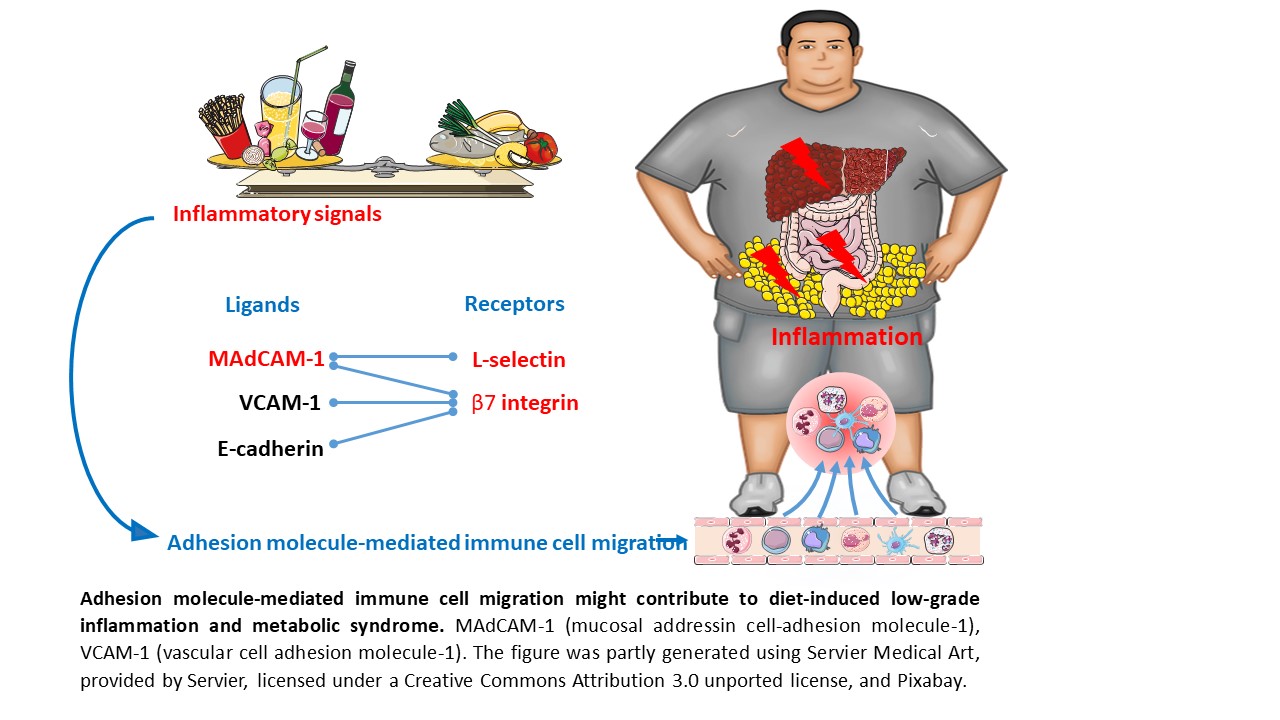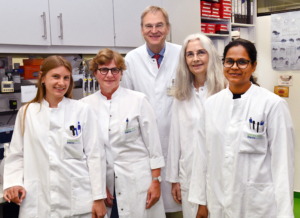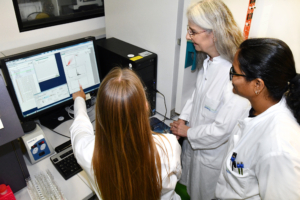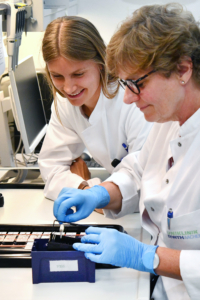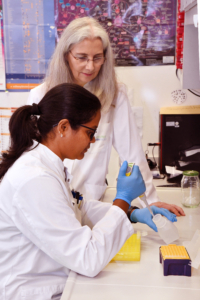B02: Coordination of gut-liver communication by directed immune cell migration
Directed migration of immune cells is controlled by the expression of chemokines and adhesion molecules. Misdirected immune cell migration contributes to the pathogenesis of liver and gut inflammation. Selective inhibition of immune cell migration has already reached clinical application in the treatment of inflammatory bowel disease.
The gut-specific adhesion molecules, α4β7 integrin, mucosal addressin cell-adhesion molecule (MAdCAM)-1, and L-selectin could potentially link inflammatory processes in the gut-liver axis. Previously, we have shown a participation of these adhesion molecules in the pathogenesis of gastrointestinal diseases including non-alcoholic fatty liver disease (NAFLD), autoimmune hepatitis, and inflammatory bowel disease.
In this project we will
- explore the impact of adhesion molecules on colitis-associated liver diseases in experimental mouse models of primary sclerosing cholangitis and different combined models of colitis and hepatitis, with respect to liver damage, gut barrier integrity, faecal microbiota composition, and gut-liver immune cell migration.
- characterise the role of β7 integrin in metabolic syndrome and NAFLD in the context of diet-induced low grade inflammation in mice, focussing on β7 integrin-dependent liver and gut barrier damage, nutrient absorption, and innate immune cell function.
- translate data obtained in mice by analysing samples from patients with liver diseases such as NAFLD, primary sclerosing cholangitis, inflammatory bowel disease, and obesity.
By this, we want to identify clinically relevant, adhesion molecule-dependent mechanisms contributing to metabolic dysregulation and inflammatory diseases in the gut-liver unit. Such information is a prerequisite for effective targeting of aberrant immune cell migration in gastrointestinal diseases.
